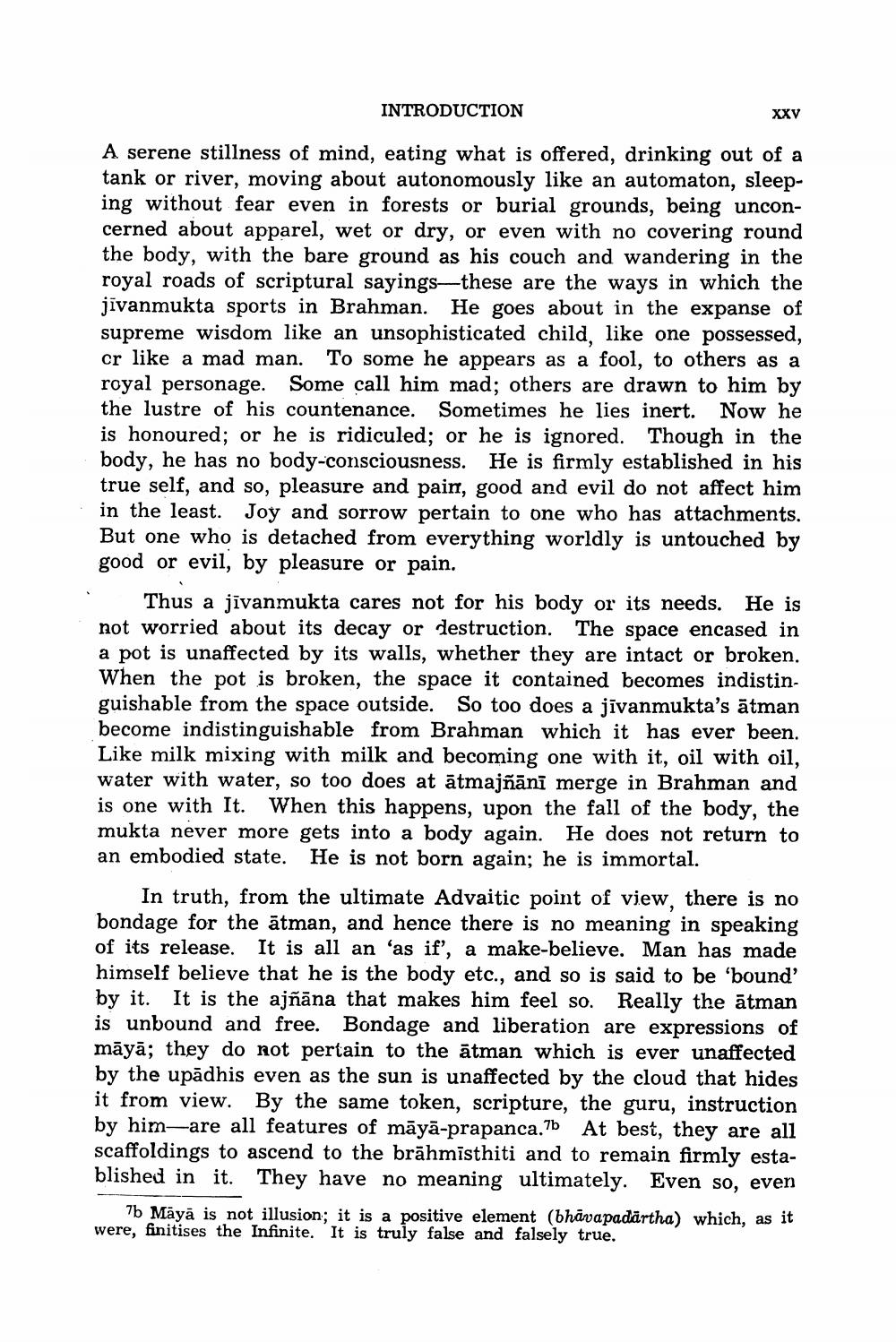________________
INTRODUCTION
XXV
A serene stillness of mind, eating what is offered, drinking out of a tank or river, moving about autonomously like an automaton, sleeping without fear even in forests or burial grounds, being unconcerned about apparel, wet or dry, or even with no covering round the body, with the bare ground as his couch and wandering in the royal roads of scriptural sayings—these are the ways in which the jivanmukta sports in Brahman. He goes about in the expanse of supreme wisdom like an unsophisticated child, like one possessed, cr like a mad man. To some he appears as a fool, to others as a royal personage. Some call him mad; others are drawn to him by the lustre of his countenance. Sometimes he lies inert. Now he is honoured; or he is ridiculed; or he is ignored. Though in the body, he has no body-consciousness. He is firmly established in his true self, and so, pleasure and pain, good and evil do not affect him in the least. Joy and sorrow pertain to one who has attachments. But one who is detached from everything worldly is untouched by good or evil, by pleasure or pain.
Thus a jīvanmukta cares not for his body or its needs. He is not worried about its decay or destruction. The space encased in a pot is unaffected by its walls, whether they are intact or broken. When the pot is broken, the space it contained becomes indistinguishable from the space outside. So too does a jivanmukta's ātman become indistinguishable from Brahman which it has ever been. Like milk mixing with milk and becoming one with it, oil with oil, water with water, so too does at ātmajñānī merge in Brahman and is one with It. When this happens, upon the fall of the body, the mukta never more gets into a body again. He does not return to an embodied state. He is not born again; he is immortal.
In truth, from the ultimate Advaitic point of view, there is no bondage for the ātman, and hence there is no meaning in speaking of its release. It is all an 'as if', a make-believe. Man has made himself believe that he is the body etc., and so is said to be 'bound' by it. It is the ajñāna that makes him feel so. Really the ātman is unbound and free. Bondage and liberation are expressions of māyā; they do not pertain to the ātman which is ever unaffected by the upādhis even as the sun is unaffected by the cloud that hides it from view. By the same token, scripture, the guru, instruction by him-are all features of māyā-prapanca.75 At best, they are all scaffoldings to ascend to the brāhmisthiti and to remain firmly established in it. They have no meaning ultimately. Even so, even
7b Mäyä is not illusion; it is a positive element (bhävapadārtha) which, as it were, finitises the Infinite. It is truly false and falsely true.




